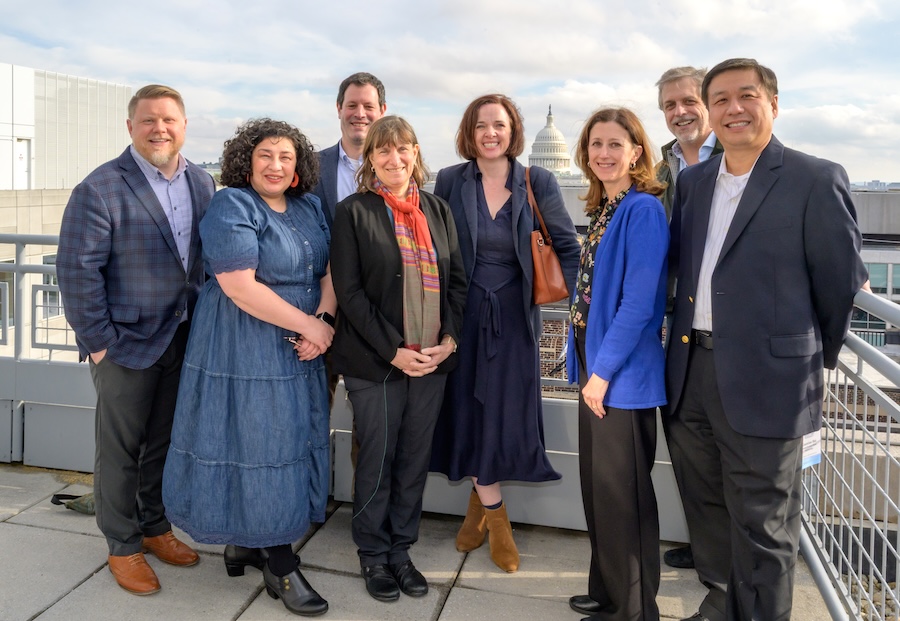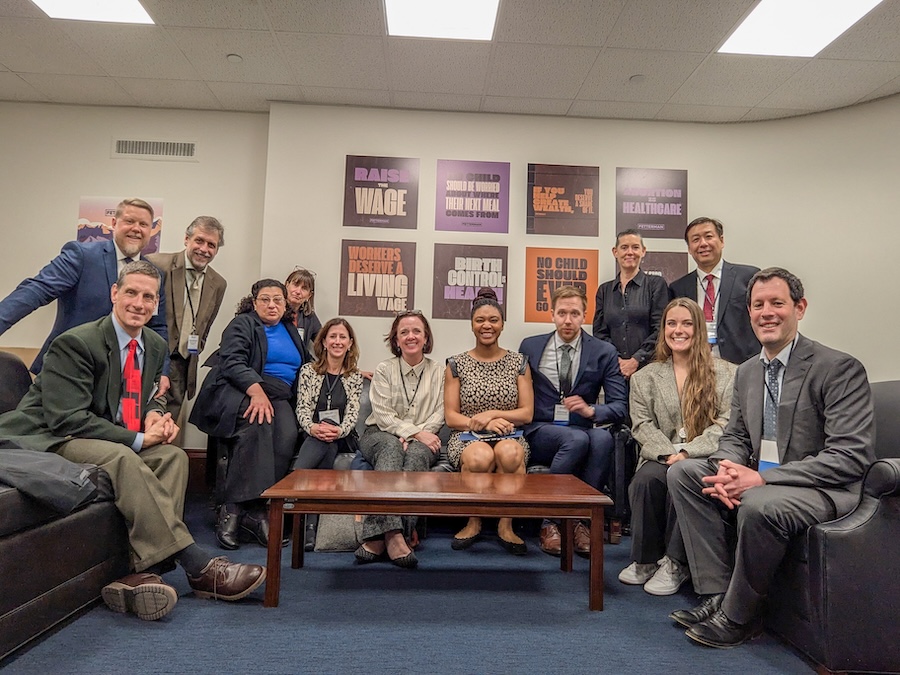
A distinguished delegation of Penn State researchers traveled to Washington, D.C., March 24-25, to participate in the annual Consortium of Social Science Association's (COSSA) Social Science Advocacy Day. The event brought together social and behavioral scientists from across the nation to engage with policymakers and promote sustained federal support for social science research.

The Penn State team, representing the Social Science Research Institute (SSRI), key sponsor of the event, included:
- Deborah Ehrenthal, SSRI director and professor of biobehavioral health
- Koraly Pérez-Edgar, SSRI associate director and McCourtney Professor of Child Studies
- Jennifer Glick, SSRI associate director and Hoffman Professor of Sociology and Demography
- Xiaoxiao Bai, co-director of the Social, Life, and Engineering Imaging Center
- Emma Rose, co-director of the Social, Life, and Engineering Imaging Center
- Joel Segel, director of the Consortium on Substance Use and Addiction
- Marty Sliwinski, director of the Geroscience and Dementia Prevention Consortium
- Michael Donovan, associate director of the Evidence-to-Impact Collaborative
The delegation joined nearly 70 representatives from research and educational institutions and professional organizations around the country. Other members of the Pennsylvania delegation included researchers from the University of Pennsylvania, Drexel University, the Society for Research in Child Development, and the American Academy of Political and Social Science.
Meetings with Pennsylvania Lawmakers
The Penn State team held productive meetings with members of Pennsylvania's congressional delegation, including Senator John Fetterman, Senator David McCormick, Representative Chrissy Houlahan (PA-06) and Representative Glenn "GT" Thompson (PA-15). According to Ehrenthal, these discussions emphasized the critical role social and behavioral science research plays in addressing pressing societal challenges such as mental health, child development, substance use, aging populations and evidence-based policymaking and how vital this work, including federal data systems, is to underpinning American economic dynamism and competitiveness on the world stage.
“Our conversations with policymakers highlighted how federal investments in social science research drive impactful solutions to complex societal issues,” Ehrenthal said. “These engagements are vital to fostering champions for science within Congress.”
Making the case for federal support
During their Capitol Hill meetings, the Penn State researchers shared insights from their work with the aim of engaging policymakers for continued federal funding. Topics included advancing public health initiatives, understanding cognitive decline, addressing addiction crises and leveraging interdisciplinary approaches to improve community well-being.
“Federal funding enables us to tackle critical human and social problems through innovative research,” Segel said. “Advocacy Day provides a platform to demonstrate how our work benefits communities locally and nationally.”

A unified voice for science
The COSSA Advocacy Day underscores the importance of collaboration between researchers and policymakers, according to Pérez-Edgar. By participating in this event, Penn State continues to showcase its leadership in advancing social science research that informs sound public policy.
“Advocacy Day is a unique opportunity to bridge the gap between research and policy,” Pérez-Edgar said. “It allows us to share our findings directly with those shaping legislation that impacts our work.”
Penn State’s participation reflects its commitment to fostering interdisciplinary research that addresses real-world challenges while ensuring that federal support remains strong for future scientific advancements, Ehrenthal said.